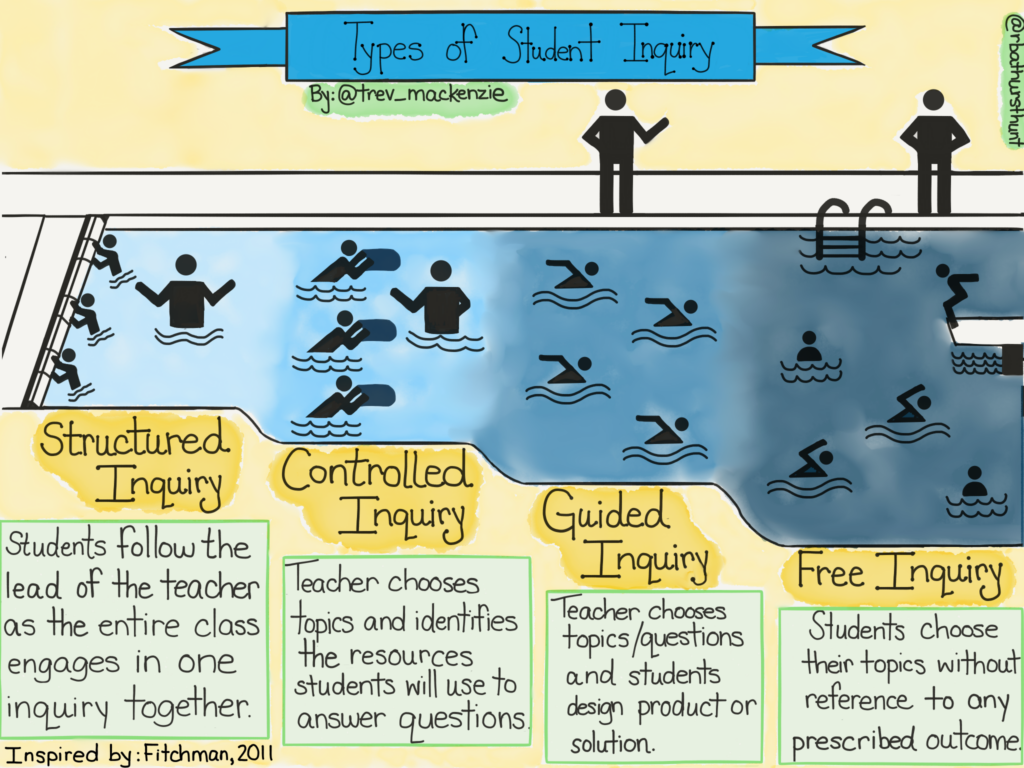Last Friday, November 5th, Trevor Mackenzie visited our EDCI 336 class to discuss his vision for student agency in the classroom, and how we as teachers can create better connections with our students. The most familiar part of his presentation was also one we were already familiar with: the different approaches to inquiry. Our class had previously been shown the graphic (pictured below) in an earlier session, but what was most impactful was Trevor’s assertion that no inquiry type is inherently more valuable for student learning than any other.

When we see images like this, with a clear progression of themes and ideas, I think it’s natural to assume that they function like steps of sorts, and that the last progression is the end goal. Trevor related the inquiry types to the organization-, depth-, and activity-level of a pool, and many of us assumed that the deepest is also the best. Surely the deepest and most varied pool activity is also the deepest and most beneficial to our students!
But Trevor provided a small yet crucial reminder that the types of inquiry are not steps or a progression to an end goal. In many ways, inquiry is the end goal, no matter what form it takes. In the sciences, my teachable area, the first three curricular competencies listed are about curiosity and identifying/forming questions about the world, with several others focusing on effective investigation of these and other questions. Every learner is different, but every learner will learn–and be motivated to learn–best when they are learning about the questions they have.
But free inquiry, wherein students “choose their topics without reference to any prescribed outcome,” is not necessarily the most effective means by which students can learn by questioning. Trevor’s graphic is amazing because it provides teachers with some structural support, so that teachers can scaffold inquiry projects with their students. Structured and controlled inquiry can be incredible valuable, and while they certainly develop skills and processes students will need when taking on guided or free inquiry, it’s not like we necessarily have to get to those levels.
So many factors need to be considered: students’ inherent motivation to undergo the inquiry, their level of background knowledge on the subject, their previous experiences with inquiry projects, and so much more. Inquiry is an incredibly powerful tool, but sometimes, students don’t know what they don’t know, or they know what they want to know but not how to begin getting there. All of these factors will make certain inquiry types more appropriate than others in different contexts, and it is our job to utilize the process that will best engage our students and lead them to conclusions and skills that will stick with them into their adult life.
Photo by Andrew Coop on Unsplash

Leave a Reply
You must be logged in to post a comment.